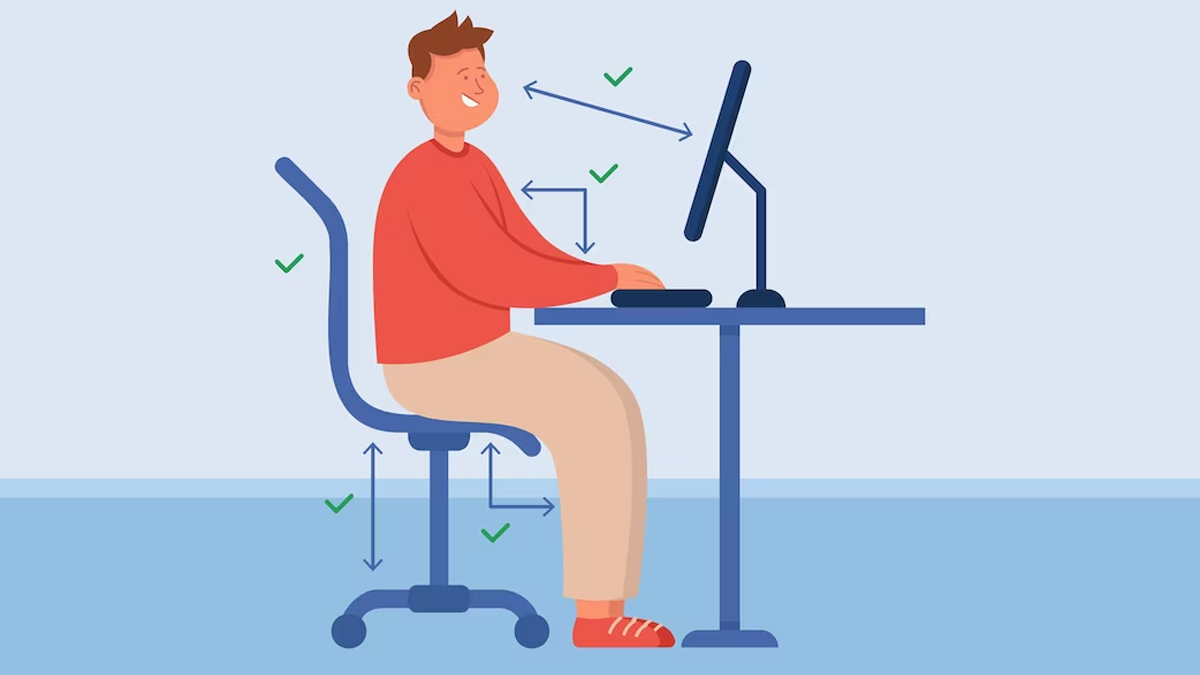
In today's modern world, we are living increasingly sedentary lifestyles, with many of us spending hours sitting at desks, in front of screens, or commuting in cars.
Prolonged sitting has become the norm for many working professionals. They may not realise that prolonged sitting is apparently a harmless activity that can pose hidden dangers to your health. The human body is designed for movement, and sitting for extended periods of time can have negative impacts on our physical, mental, and even emotional well-being. Here are some hidden dangers of prolonged sitting.
Table of Content:-
Increased Risk of Chronic Diseases
Studies have shown that prolonged sitting is associated with an increased risk of chronic diseases such as obesity, type 2 diabetes, cardiovascular disease, and even certain types of cancer.
A study published in the American Journal of Epidemiology found that sitting for more than 6 hours a day was associated with a 34% higher risk of dying from cardiovascular disease compared to those who sat for less than 3 hours a day.
Read: Sleeping For Less Than Five Hours Could Put You At Higher Risk Of Chronic Diseases, Study Finds
Another study published in Diabetologia found that sitting for long periods of time without breaks can impair insulin sensitivity, which can increase the risk of developing type 2 diabetes.

Musculoskeletal Issues
Sitting for prolonged periods can lead to various musculoskeletal issues, including back pain, neck pain, and poor posture. When we sit for long hours, our muscles become inactive, leading to muscle imbalances and weakening of the core muscles that support the spine. This can result in poor posture, which over time can lead to chronic pain and discomfort.
Read: Study Finds The Link Between Consumption Of Red Meat And Chronic Diseases
A study published in the Journal of Physical Therapy Science found that prolonged sitting was associated with increased lumbar flexion, decreased lumbar extension, and decreased muscle activity in the erector spinae muscles. These muscles are important for maintaining good posture.
Mental Health Concerns
Prolonged sitting can also have negative impacts on our mental health. Studies have found that sedentary behaviour, including prolonged sitting, is associated with an increased risk of developing mental health issues such as depression and anxiety. So Mayo clinic advises you to take a break of approximately 30 minutes.

As per a study published in the American Journal of Preventive Medicine, sedentary behaviour was associated with a 25% increased risk of developing depression, even after accounting for physical activity levels.
Sitting for long periods can also lead to decreased cognitive function, including reduced attention span and impaired memory. To avoid this Instead of sitting in a conference room, walk with your colleague during meetings.
Reduced Lifespan
A study published in the British Journal of Sports Medicine found that sitting for more than 8 hours a day was associated with a 9-13% increased risk of premature death, even in individuals who were physically active. This suggests you that even if we engage in regular exercise, prolonged sitting can still have detrimental effects on your overall health and longevity.
Increased Risk of Deep Vein Thrombosis (DVT)
Sitting for extended periods of time can increase the risk of developing deep vein thrombosis (DVT), which is a blood clot that forms in the deep veins, usually in your legs. A study published in the journal Circulation says that sitting for long periods without taking breaks increased the risk of developing DVT, especially in those people who were predisposed to blood clotting disorders. DVT can be a serious condition that can lead to life-threatening complications if not addressed promptly.
Also watch this video
How we keep this article up to date:
We work with experts and keep a close eye on the latest in health and wellness. Whenever there is a new research or helpful information, we update our articles with accurate and useful advice.
Current Version